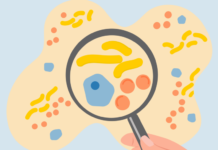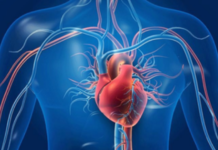NEW DELHI — Scientists at the Indian Institute of Technology (IIT) Bombay have identified previously hidden blood markers that could help detect the risk of diabetes earlier and enable more personalized treatment approaches, offering fresh insights into one of India’s most widespread health challenges.
India currently has an estimated 101 million adults living with diabetes and another 136 million classified as prediabetic, making it one of the world’s most affected countries. Conventional diagnostic tests such as fasting glucose and HbA1c, while useful, capture only part of the complex biochemical disruptions underlying the disease and often fail to predict who faces the highest risk.
To address this gap, the IIT Bombay team used metabolomics — the study of small molecules in the blood known as metabolites — to uncover biochemical patterns that precede clinical symptoms. “Type 2 diabetes is not just about high blood sugar. It disrupts amino acids, fats, and other pathways in the body. Standard tests often miss this hidden activity, which may begin years before the onset of clinical symptoms,” said Sneha Rana, a doctoral scholar at IIT Bombay.
The study, published in the Journal of Proteome Research, analyzed whole blood samples from 52 volunteers collected at Osmania General Hospital in Hyderabad between June 2021 and July 2022. The group included 15 healthy individuals, 23 patients with type 2 diabetes, and 14 patients with diabetic kidney disease (DKD). Using liquid chromatography–mass spectrometry (LC-MS) and gas chromatography–mass spectrometry (GC-MS), researchers screened nearly 300 metabolites and identified 26 that differed significantly between healthy and diabetic participants.
While some variations involved well-known indicators such as glucose, cholesterol, and 1,5-anhydroglucitol, the study also found novel markers like valerobetaine, ribothymidine, and fructosyl-pyroglutamate — compounds not previously associated with diabetes. “This suggests that diabetes is a much broader metabolic disorder beyond just glucose dysregulation,” said Professor Pramod Wangikar of IIT Bombay.
The researchers also found biochemical patterns that could help identify diabetic patients at risk of developing kidney complications. When comparing participants with diabetic kidney disease to other groups, the team observed a steady increase in seven metabolites, including sugar alcohols such as arabitol and myo-inositol, as well as ribothymidine and a toxin-like compound called 2PY, which accumulates in cases of kidney damage.
The findings could contribute to developing more comprehensive diagnostic tools that identify diabetes and its complications long before traditional tests can, paving the way for earlier interventions and improved patient outcomes. (Source: IANS)














